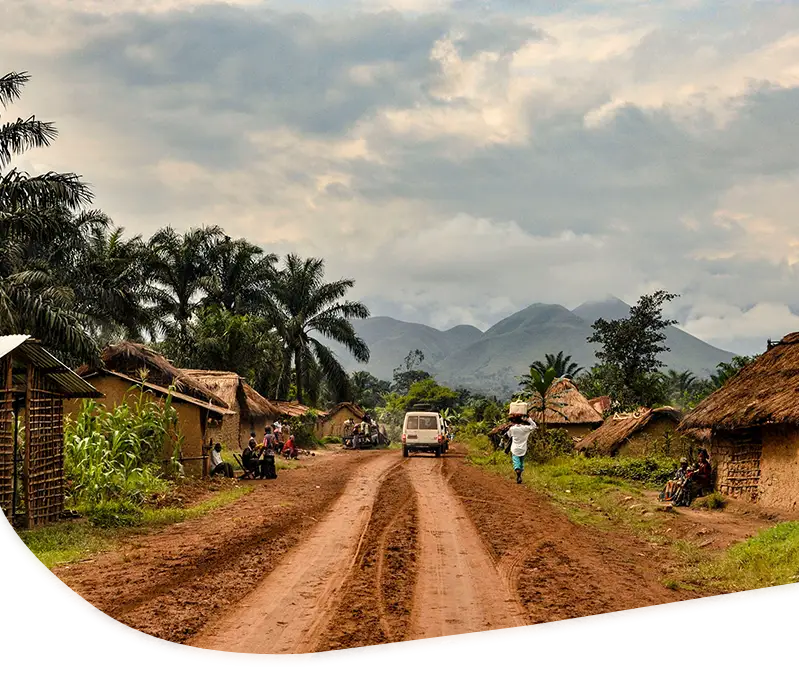Labor Laws in Democratic Republic Of The Congo
- Annual Leave: Minimum of 12 days
- Maternity Leave: 14 weeks
- Public Holidays: 10
- Workweek: 45 hours per week.

Get everything you need to hire talent in the Democratic Republic of Congo. Download our comprehensive guide for hiring in this expanding African market.
Capital:
Kinshasa
Language:
French
Currency:
Congolese franc
Please enter the following information:
Individual income taxes are progressive, ranging from 3% to 40% based on the worker’s earnings.
The standard sales tax is 16%.
Social security contributions for employers and employees are as follows:
Employee Contributions
Employer Contributions
Types of Work Visas in the DRC:
Temporary Visa
The General Direction of Migration issues temporary work visas. To obtain a temporary work visa, the following documents must be submitted to the Direction:
Work Permit
To obtain a work permit, authorization for a work card from the Labor Ministry is required.
The process used to obtain temporary work visas also applies to work visas and work permits.
This process also applies to establishment visas and multiple entry visas.
Setting up a company in the Democratic Republic of Congo can be expensive and complex. Global Expansion simplifies your entry into this market.
We handle hiring, HR, and payroll while ensuring compliance with local regulations, all without establishing a local entity.
Our DRC Republic Employer of Record (EOR) solution gives you the freedom to focus on your business growth.